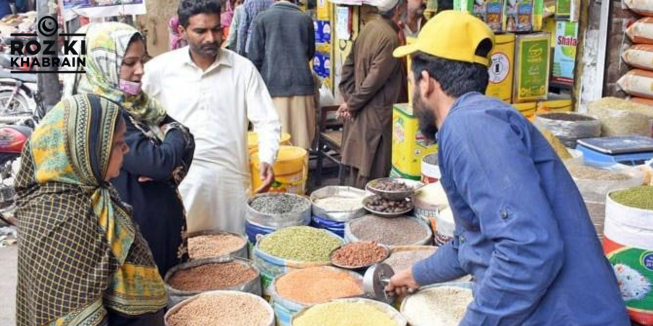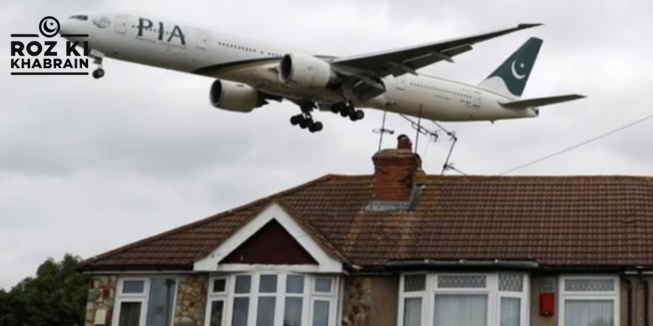Mohammad Altaf remains skeptical of the government’s claims that inflation is on the decline, arguing that a drop in flour prices cannot be considered a relief when the costs of other essential items continue to soar.
Altaf, a daily wage laborer from Nathiagali in Khyber Pakhtunkhwa, has been selling vegetables in Karachi for the past 25 years. He lives in a two-room, 80-yard rental space with three housemates, paying Rs12,000 in rent each month.
Despite only using “two to three LED bulbs and two fans,” his monthly electricity bills from K-Electric range from Rs10,000 to Rs12,000. The cost of three daily meals is between Rs800 and Rs1,000.
Every day, Altaf spends up to Rs10,000 on vegetables, plus an additional Rs400 for transportation from the Super Highway vegetable market to his selling locations. The cost of shopping bags alone is Rs500 per kilogram.
Additionally, Altaf sends Rs30,000 monthly to his family in Nathiagali, a sum he deems insufficient due to escalating costs. “A year ago, I used to send Rs20,000-22,000, and that would suffice,” he says.
Similarly, a tailor charges between Rs2,000 and Rs2,500 for stitching a shalwar kameez, and basic items like soap and washing powder have become significantly more expensive. Over the past year, most prices have risen by 30-40%, largely driven by high electricity bills. In light of these rising costs, Altaf is baffled by the government’s claim of decreasing inflation.
Faisal Ahmed, who runs a laundry business, has been forced to raise his rates to Rs40 for ironing and Rs80 for washing and ironing, due to high energy costs. Even with these increases, he finds it difficult to make ends meet, with his shop rent at Rs16,000 and power bills matching that figure.
Typically, vegetable prices drop in the winter season, but this year, prices have remained high because various market players, including growers, wholesalers, and retailers, have raised their profit margins to offset the rising cost of living.
Sensitive Price Indicator
According to Sensitive Price Indicator (SPI) data, the price of a 20kg bag of flour dropped to Rs1,580-2,200 in mid-December, down from Rs2,666-2,960 at the beginning of the year.
However, other essentials have become more expensive. For instance, the price of one kilogram of ghee has risen from Rs470-575 to Rs545-575, and the cost of gram pulses (daal chana) has increased from Rs220-300 to Rs330-470 per kilogram. The prices of mutton and beef have also surged, with mutton now costing Rs1,550-2,400 per kilogram and beef Rs700-1,300, up from Rs1,400-2,200 and Rs600-1,100, respectively, in January.
Official data shows the price of a 10kg wheat bag has decreased from Rs1,247 to Rs809, and the price of fine flour (1kg) has dropped from Rs156 to Rs111. Despite a reduction in diesel prices from Rs276 to Rs255 per liter, the impact on supply chains has been minimal.
‘No Real Decline’
Mohammad Sohail, CEO of Top Line Securities, stated that while the percentage increase in commodity prices may have slowed, there is no actual decrease. This, he believes, explains why the common person’s perception differs from economists’ views.
Samiullah Tariq, head of research and development at Pak Kuwait Investment Company, clarified that a decline in inflation figures simply reflects a slower rate of price increases, not a reduction in the prices of goods.
Abdul Rauf Ibrahim, Chairman of the Karachi Wholesalers Grocers Association, stated that only wheat and flour prices have dropped due to higher yields and imports over the past year, while prices for other essentials have remained high. However, even with the decrease in wheat prices, consumers are not benefiting at the retail level. For example, Flour No. 2.5 is priced at Rs110-120 per kilogram in Karachi, despite the wholesale rate being Rs82 per kilogram, while the city government has set its price at Rs90.
Similarly, the wholesale price of fine flour is Rs90 per kilogram, while the retail price is Rs120, and the official rate is Rs95. ‘Chakki Aata’ is sold at Rs130 per kilogram, though the official rate is Rs115.
Mr. Rauf urged the government to address these price discrepancies at the retail level, where consumers are often unaware of wholesale prices and thus remain vulnerable to exploitation.
He also recommended that the government publish official price lists for medicines on the health ministry’s website, as significant price gaps exist between wholesale and retail rates.
Economic Forecast
Mohammad Tahir of Sherman Securities predicts that the Consumer Price Index (CPI) will rise by 4.5% year-on-year (YoY) in December 2024, compared to 4.9% YoY in the previous month, citing a base impact and a flat food index. On a month-on-month (MoM) basis, CPI is expected to increase by 0.4%.
The food sector is projected to rise by 0.3% YoY in December 2024, with prices for wheat, chicken, pulses, tomatoes, and rice expected to decrease, while the cost of eggs, cooking oil, potatoes, and fruits is expected to rise.
The State Bank of Pakistan (SBP) is also expected to further reduce the policy rate by 200bps during FY25, with average inflation projected to range between 6.5-7% for FY25, in line with the IMF’s recommendation to maintain a positive real interest rate to control inflation.




